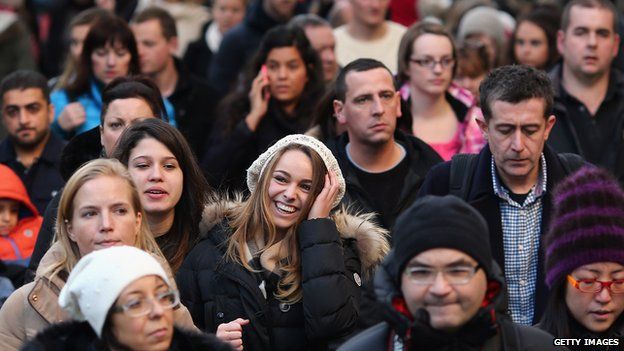Benefit changes: Who will be affected?
- Published

Hundreds of thousands of UK families will be affected by cuts of £12bn in the UK's welfare budget announced by the chancellor.
For the first time tax credits and family benefits under Universal Credit will be limited to the first two children only.
At the moment 870,000 families with more than two children claim tax credits, according to HMRC.
Most working age benefits will be frozen for four years from 2016.
Those claiming the working element of Employment and Support Allowance (ESA) will see payments reduced, to match Job Seekers Allowance (JSA).
The benefit cap will be reduced from £26,000 a year to £23,000 a year in London, and £20,000 in the rest of the country.
And those aged between 18 and 21 will no longer necessarily receive Housing Benefit.
Tax Credits
Any family which has a third or subsequent child born after April 2017 will not qualify for Child Tax Credit, which amounts to up to £2,780 a year per child. This will also apply to families claiming Universal Credit for the first time after April 2017.
Working parents at a childcare centre in Cardiff discuss tax credits
However those who have been in receipt of tax credits or Universal Credit with an interruption of less than six months, will be protected.
This change will not apply to Child Benefit.
The income level at which you can claim tax credits will also go down.
From April 2016 the income threshold will go down from £6,420 to £3,850, meaning that far fewer people will be eligible to claim. Anyone earning more than £3,850 will now have their income reduced more steeply.
Previously claimants' income could also rise - the income rise disregard - by £5,000 a year. That disregard will now be cut to £2,500.
The chancellor said that spending on tax credits would now return to the level it was at in 2007/2008. The changes are expected to save £5.37bn a year by 2019.
Benefits freeze
Most working age benefits will be frozen for four years from April 2016. Since April 2013 they have been up-rated by 1% a year.
This will include Job Seeker's Allowance, Employment and Support Allowance, some types of Housing Benefit, and Child Benefit. Pensions, Maternity Pay and disability benefits are excluded.
The measure is expected to save £3.9bn a year.
Housing Benefit
From April 2017, those out of work between the ages of 18 and 21 will not be automatically entitled to claim housing benefit. Parents whose children live with them will be excluded from this measure.
Vulnerable groups will also be excluded, as will claimants who have been in continuous work for the preceding six months. This will save £35m a year from 2017.
Employment and Support Allowance (ESA)
Currently those who claim the Work Related Activity Group (WRAG) element of ESA get £30 more than JSA. But from April 2017, new claimants judged fit for work-related activity will get the same as JSA. That is currently £73.10 for someone over the age of 25, or £57.90 for 18-24 year-olds. The WRAG element of ESA currently pays £103 a week.
Latest figures suggest 492,000 people will be affected by the cut.
The government estimates this will save £445m a year.
Benefit cap
The current benefit cap limits most payments to £26,000 a year, across the UK. From April 2017 that will be cut to £23,000 in London, and £20,000 elsewhere. Up to now 45% of households affected by the cap have been in London. Those who exceed the cap receive a cut to Housing Benefit. The benefits excluded from the cap include: Working Tax Credit, Disability Living Allowance, Personal Independence Payments and the WRAG element of ESA.
Up until February 2015, 58,700 families had their benefits cut as a result of the cap. That number is now likely to grow.
The measure is expected to save £405m a year.
Universal Credit
As many as 300,000 fewer people are expected to be eligible for Universal Credit as a result of the changes. From April 2017, parents claiming Universal Credit will be expected to "prepare" for work when their youngest child is two years old. When the child is three, they will be expected to look for work.
Social Rents
The chancellor also confirmed that higher earners will have to pay more in rent for social housing. Those earning more than £30,000 will have to make a bigger contribution if they live in council or housing association property. Anyone earning more than £40,000 in London will also have to pay more. However, for everybody, rents will be reduced by 1% a year for four years from 2016.